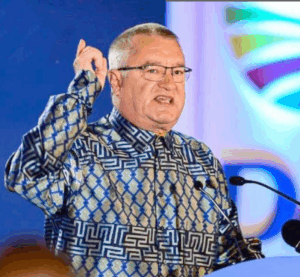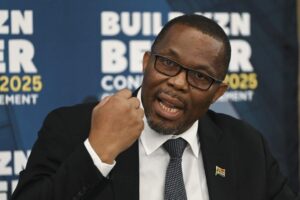The DA laments the ongoing disregard of almost all KwaZulu-Natal (KZN) public and committee input on critical pieces of legislation. Despite massive budgets being allocated and spent on public participation, there is clear evidence that the National Council of Province’s (NCOP) systematically disregards all public comment.
The last-minute rush to ram home legislation that has been under discussion for years is also unacceptable. In fact, the ongoing disregard for public comment being incorporated into final legislation smacks of tick box democracy and cannot be tolerated.
Perhaps the biggest missed opportunity of the Upstream Petroleum Development Bill is to truly, fairly and sustainably utilise foreign investment to grow jobs and South Africa’s economy. Instead, the ANC has essentially chased potential international miners away with race-based quotas.
Countries with large oil and gas reserves – and credible legislation governing the exploitation of those reserves – tend to be extremely rich with high standards of living, such as Norway, the United Kingdom and the United States.
Oil reserves remain complex and expensive to retrieve. Exploration estimates put the cost of drilling one offshore well at R800 million. Clearly, international investors with the expertise and money to drill are the major oil companies. The question is: What legislation will persuade them to spend their money exploring for oil and gas in our territory?
Ten years ago, the ANC-run government tried to rewrite the rules governing oil and gas in an amendment of the Mineral and Petroleum Resources Development Act (MPRDA) of 2002. It proposed conditions that were unacceptable to investors.
Even though that amendment was scrapped, investors sat on their hands or left the country. South Africa lost ten years in which it could have had exploration and development. This incompetence cost us money and jobs.
There are provisions in this bill that will put off investors. The bill demands 20% of every project goes to the state oil company, essentially Petro SA. On top of that 20% giveaway, this bill demands that another 10% be set aside for Broad-based Black Economic Empowerment (BEE) companies.
The Minister of Mineral Resources and Energy will also decide when to open applications for blocks. That gives him huge power to advantage bidders. Given the ANC penchant for crookery, this opens the door to corruption.
By comparison, Namibia will be producing oil and gas in four years. Unless oil companies take a very long view, this bill could see development of South Africa’s resources set back for another ten years. That means less investment, fewer jobs and no supercharge of the fiscus.
Passing this bill will have consequences and will ensure that the ANC’s usual toxic combination of greed, ignorance and ideology will continue to keep South Africans in poverty.







